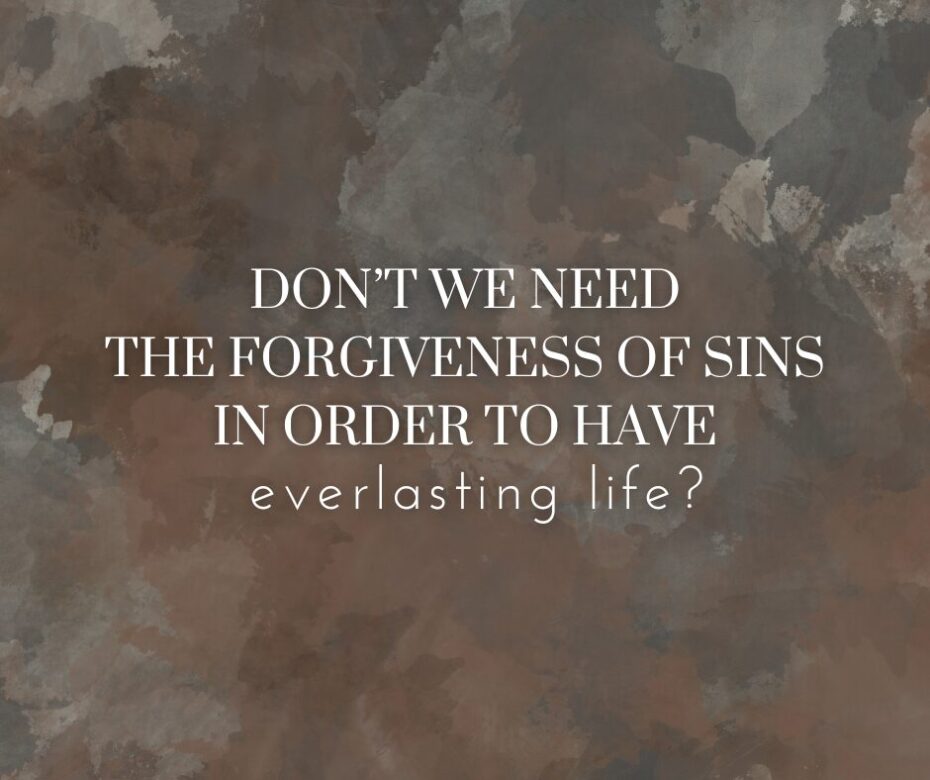I sent Grant my blog in which I responded to his question about forgiveness and salvation. He wrote this in reply:
Thank you so much for the quick reply. I see what you are saying—Jesus repeatedly promised that anyone who believes in Him has everlasting life and He didn’t mention that they necessarily have the forgiveness of sins.
However, I am still confused because I thought forgiveness of sins was synonymous with everlasting life.
Since the wages of sin is death, wouldn’t that mean that your sins must be forgiven to have everlasting life?
Didn’t Jesus show that these happen simultaneously when He said in John 8:24, “I said therefore unto you, that ye shall die in your sins: for if ye believe not that I am he, ye shall die in your sins”?
Grant raises three new questions.
First, if the wages of sin is death, then doesn’t that mean we need forgiveness of our sins to avoid the second death, which is eternal condemnation?
That is a common misconception. The wages of sin is physical death, not eternal condemnation. The reason why believers die physically is because we are sinners. The cross has not yet eliminated death.
The forgiveness of sins does not mean that the wages of sin is no longer death.
The cross removed sin as a barrier between us and God (John 1:29). It made us savable. But it did not remove death.
Second, doesn’t John 8:24 prove that forgiveness is required in order to avoid eternal condemnation?
John 8:24 is much misunderstood. Jesus spoke of dying in your sins. It is true that everyone dies because we are sinners. But that wasn’t the Lord’s point in John 8:24. His point was that unless we believe in the Lord Jesus Christ, we will remain slaves of sin our whole lives. A few verses later, in John 8:30-32, the Lord made this clear. To be free from sin’s bondage, one must believe in Christ and abide in Him and His teachings. Paul expanded on that idea in Romans 6. All believers are set free from sin’s bondage positionally. But to experience that freedom, we must abide in Christ.
The issue in John 8:24 is not the forgiveness of sins.
Third, don’t the forgiveness of sins and the reception of everlasting life occur simultaneously? Yes. However, the forgiveness of sins, unlike everlasting life, is not once and for all. We need ongoing forgiveness (1 John 1:9). If a believer is out of fellowship with God, he has everlasting life but is unforgiven in his present experience.


